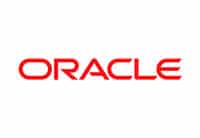Oracle Cloud Infrastructure provides a number of Software Development Kits (SDKs) and a Command Line Interface (CLI) to facilitate development of custom solutions. In this course, learn to install the Python SDK for OCI along with OCI CLI and write code to deploy various core OCI Services.
-
Oracle Cloud Infrastructure Foundations
This course will help you in developing a strong foundation in cloud computing, core concepts and features of Oracle Cloud Infrastructure (OCI).
-
The Oracle Cloud Infrastructure Operations Professional course caters to Administrators and Architects. It offers an in-depth technical introduction to essential OCI capabilities, covering various aspects such as using OCI CLI to create, discover, and terminate resources. Additionally, the course covers topics like creating shell scripts using OCI CLI, utilizing Oracle Resource Manager, provisioning a simple set of OCI resources with Ansible, managing custom images, and understanding Network Security Architecture, including Virtual Cloud Network (VCN), Load Balancer, and DNS.
Throughout the course, participants will engage in practical exercises, including provisioning and managing OCI resources, describing scaling options, handling billing and account management in the OCI Console, and troubleshooting OCI resources. They will learn to optimize performance, ensure security, and efficiently manage operational tasks within OCI
-
In this course, you will learn to install the Go and Typescript SDKs for OCI and write codes to deploy various core OCI Services.
-
Ansible provides you a solution to the tedious task of administering a server fleet. Ansible provides a platform for configuring and managing compute instances.
In this course, you will learn the basics of working with Ansible in OCI, including installation and configuration. Also, you will discover the benefits of Infrastructure as Code (IaC) via Ansible, understand and create the building blocks for Ansible to be used in the form of playbooks. Lastly you will be able to create playbooks and configure and manage resources on OCI.
-
The Oracle Database 12c: Global Data Services seminar helps you learn about Oracle Database 12c Global Data Services (GDS). Expert Oracle instructors will teach you how to install, configure, administer and use Global Data Services.
Learn To:
- Install Global Data Services.
- Configure the Global Data Services framework.
- Administer Global Data Services Clouds.
Topics Covered:
- Global Data Services overview
- Global Data Services framework
- Global Services theory
- Global connection load balancing
- Global runtime connection load balancing
- Global Services failover
Benefits to You
Ensure fast, reliable, secure and easy to manage performance. Optimize database workloads, lower IT costs and deliver a higher quality of service by enabling consolidation onto database clouds.
Explore Global Data Services
You’ll also learn about the benefits provided by Global Data Services for managing cloud-deployed distributed databases. Furthermore, you’ll review best practices for configuring Global Data Services to use Oracle Active Data Guard configuration and Oracle GoldenGate replication.
-
This Oracle Database 12c: Implement Partitioning training teaches you how to manage partitioning using Oracle Database 12c. Expert Oracle University instructors will demonstrate the benefits of partitioning for different types of workloads and learn the syntax for partitioning maintenance operations. In this course, you will be introduced to Oracle Database Cloud Service.
Learn To:
- Apply partitioning strategies to enhance application performance.
- Use partitioning techniques to reduce impact of table and index maintenance.
- Use partitioning to decrease the time to refresh materialized views.
- Partition lob segments, nested tables and object tables.
- Understand the Oracle Partitioning methods for tables, index and materialized views available in Oracle Database 12c Release 1.
- Gain an understanding of the Oracle Database Cloud Service.
-
In the Oracle Database 12c: Performance Management and Tuning course, learn about the performance analysis and tuning tasks expected of a DBA: proactive management through built-in performance analysis features and tools, diagnosis and tuning of the Oracle Database instance components, and diagnosis and tuning of SQL-related performance issues. In this course, you will be introduced to Oracle Database Cloud Service.
Learn To:
- Use the Oracle tuning methodology.
- Use Oracle-supplied tools for monitoring and diagnosing SQL and instance performance issues.
- Use database advisors to proactively correct performance problems.
- Identify and tune problem SQL statements.
- Monitor instance performance by using Enterprise Manager.
- Tune instance components.
- Gain an understanding of the Oracle Database Cloud Service.
-
The Oracle Database: SQL Workshop I Ed 3 course offers students an introduction to Oracle Database 12c database technology. The students are also introduced to Oracle Database Exadata Express Cloud Service. In this class students learn the concepts of relational databases and the powerful SQL programming language. This course provides the essential SQL skills that allow developers to write queries against single and multiple tables, manipulate data in tables, and create database objects.
Learn To:
- Identify what a SQL statement is.
- Understand the Oracle Relational Database.
- Use SQL Developer.
- Write reports using SQL Statements.
- Manipulate data in relational tables and save the data.
-
The Oracle Database: SQL Workshop II Ed 2 course will help students enhance their skills as Application developers by learning to manage the database objects, data dictionary views and multicolumn subqueries. Students also learn to write more efficient queries using the functions supporting the timezone and regular expressions.
Learn To:
- Grant and revoke privileges and roles.
- Manage schema objects and data dictionary views.
- Write efficient and complex subqueries.
- Use the in-built functions supporting the usage of regular expressions and time zone.
-
In the Oracle Database 12c R2: Advanced PL/SQL course, students learn how to use the advanced features of PL/SQL in order to design and tune PL/SQL to interface with the database and integrate with the other applications in the most efficient manner. They learn to write powerful PL/SQL programs using external C/Java routines, fine-grained access packages, cursors, extended interfaces and collections.
Learn To:
- Apply PL/SQL designing best practices.
- Create PL/SQL applications that use collections.
- Work with JSON data in the database.
- Implement a virtual private database with fine-grained access control.
- Write code to interface with external C and Java applications.
- Write code to interface with large objects and use SecureFile LOBs.
- Write and tune PL/SQL code effectively to maximize performance.
-
This Oracle Database 12c: ASM Administration training teaches you about Oracle ASM architecture. Expert Oracle University instructors will help you develop a deeper understanding of both standard ASM and Flex ASM applications. In this course, you will be introduced to Oracle Database Exadata Cloud Service.
Learn To:
- Administer ASM files, directories, templates, and disk groups.
- Manage and administer Oracle Cloud File System and its components.
- Configure and manage advanced CloudFS features like ACFS Auditing and Encryption, ACFS Replication and High Availability NFS.
- Gain an understanding of the Oracle Database Exadata Cloud Service.







